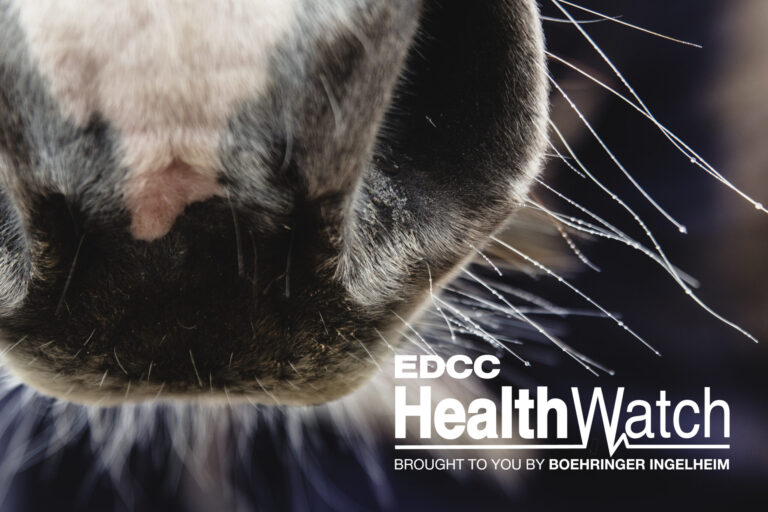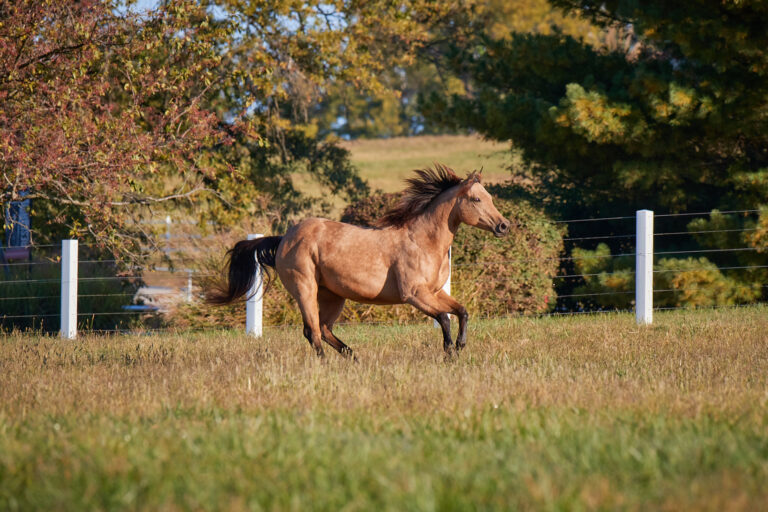 Credit: Courtesy Wisconsin Equine Clinic
Credit: Courtesy Wisconsin Equine ClinicAs I reflect upon the different generations we find in our workplace, I can’t help but recognize that we are having a generational culture clash in many of our practices. A few members of the Greatest Generation, lots of Baby Boomers, a handful of Gen Xers and a massive number of Millennials are all trying to work together efficiently and effectively. As a Boomer, I have listened to each of the four generations critique the others in the workplace.
My experience tells me that my generation was the most frustrating to deal with and disappointed our elders like no other generation in history. However, when I talk to my colleagues, they are sure that the Millennials are the most frustrating generation to deal with. It is interesting, isn’t it? We don’t recognize how difficult we are when we are young, but we sure do recognize it when we are more mature and have to interact with young people.
The point I am making is that the generational clash is nothing new. The culture of each generation is different from its predecessors as well as from its successors. The perceived generational crisis in equine practice stems from the huge numbers of Millennials in the workplace and the attempt to hand off the profession from one generation to the next. Due to the small number of Gen Xers, they assimilated into equine practice without much fuss.
In general, two approaches to implementation of change exist. We can either assume we are enemies or allies. Generational change efforts, for some reason, always seem to choose the enemy approach. Boomers fume, call Millennials names, impugn their ethics and insist on trying to convince Millennials to adopt the Boomer approach to equine practice. Think that over for a minute. How will that approach end in a positive outcome for the profession?
If we shift our approach and assume that we are allies, it becomes a simpler puzzle to solve. Boomers need to work on understanding the cultural preferences, desires and even requirements of Millennials. And Millennials need to work on understanding those same things about Boomers. Then we need to work together to build a business model that can help practitioners from all generations have success in the new landscape of equine practice.
About 10% of the readers just threw down EquiManagement and called me an idiot. It’s a good time to talk about the bell-shaped curve as it applies to change. On the left end of the curve are about 10% who embrace change early and often. On the right end are about 10% who fight change to the death. In the middle are 80% who are open to change if they understand and buy into the need for it. The 10% of Boomer-owned practices are doing just fine integrating Millennials into their business model.
This article is aimed at the 80% who are open to change.
Deloitte Touche Tohmatsu Limited conducted a survey that provided a wealth of information about what Millennials want in the workplace. Here are five key points from the survey that will help all of us better integrate Millennials into equine practice:
Millennials expect businesses to care. While most Millennials believe business is having a positive impact on society by generating jobs (48%) and increasing prosperity (71%), they think business can do much more to address society’s challenges in the areas of most concern: resource scarcity (68%), climate change (65%) and income equality (64%).
Millennials want to be innovative. Millennials want to work for organizations that support innovation. In fact, 78% of Millennials were influenced by how innovative a company was when deciding whether they wanted to work there, but most said their current employers do not do enough to encourage them to think creatively. They believe the biggest barriers to innovation are management attitude (63%), operational structures and procedures (61%), of diversity (39%).
Millennials want to be leaders. Almost one in four Millennials is “asking for a chance” to show his or her leadership skills. Additionally, 75% believe their organizations could do more to develop future leaders.
Millennials want to make a difference. Millennials believe the success of a business should be measured in terms of more than just its financial performance, with a focus on improving society among the most important things it should seek to achieve.
Millennials are also charitable and interested in participating in “public life.” The study found 63% of Millennials gave to charities, 43% actively volunteered or were a member of a community organization and 52% signed petitions.
Millennials are ready to go their own way. Businesses that fail to address these concerns might find they will lose skilled professionals in the years ahead, as many of the most talented members of the Millennial generation decide to leave large organizations and instead work for themselves. Roughly 70% of Millennials see themselves working independently at some point, rather than being employed within a traditional organizational structure. (It is interesting to note that 70% of equine practitioners are in solo practice now.)
I exchanged emails with Erin Lowry, the author of the blog “Broke Millennial,” and asked her for a key Millennial trait that would apply to our workplace. Her response: “I would say, in general, that Boomers should recognize [that] Millennials crave work-life-balance, especially if paychecks are south of six figures. It’s more important to the Millennial generation to have better benefits, especially vacation time, and many will sacrifice some pay for better work-life balance.”
Millennials are looking for practices that care, encourage innovation, foster leadership, make a difference and respect work-life balance. They are willing to make a little less money to work in that environment. If the practice fails to deliver at least some of what they expect from their job, the Millennials will leave and start their own practices. From my chair, none of the Millennial expectations look unreasonable.
Take-Home Message
It is not an insurmountable task to change the culture of equine practices to accommodate the cultural priorities of Millennials. However, there is one caveat, and it is a big one. Implementing and managing change is expensive! The current equine practice business model generates a very small profit margin!
For example, I looked at a group of equine practices with annual gross revenues of less than $1 million. The 75th percentile of net income was 13%. That means the top 25% of that group only made a profit of $13 on every $100 of gross revenue. Such a small profit margin does not leave much room for implementation and management of change. Thus, not only do we have to look at ways we can better work together from a generational standpoint, but we also have to build a practice model that increases our profit margins so we can successfully sustain change initiatives.
Generational clash is only part of the issue. I believe the other part of the issue is that many practices are trying to survive using a business model that worked in a professional landscape that is much different than the one in which we now work. We don’t need the Millennials to change!
We need their insights and ideas so we can shift our business model to one that supports all of us.
Sidebar
The Greatest Generation was a term coined by journalist Tom Brokaw to describe the generation of people who grew up in the United States during the Great Depression and went on to fight in World War II, as well as those who contributed to the war effort at home. They are also known as the “GI Generation.” This term generally refers to the people born between 1901 and 1924.
Baby Boomers got their name from the period after World War II when there was a spike in births. People born from 1946 to 1964 fall into this category.
Gen Xers or “Generation X” people were born after the post-World War II baby boom, generally speaking from the early 1960s to the early 1980s.
Millennials are the last generation born in the 20th century. They are also known as “Generation Y.” Most consider people born from the early 1980s to the early 2000s to be Millennials.









